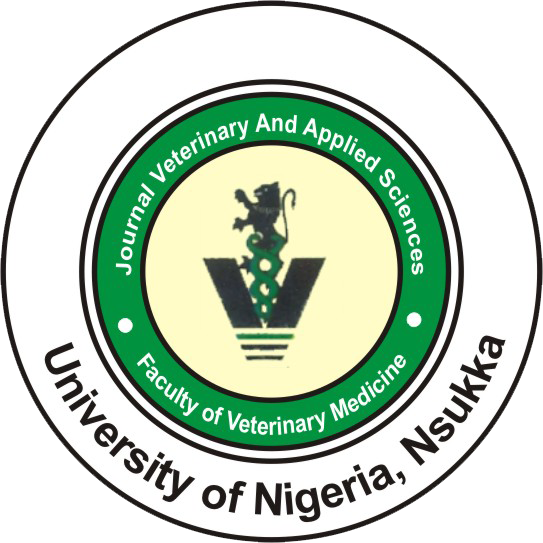University of Nigeria
ISSN: 2315 - 6856
e-ISSN: 2636 - 5553
Journal volumes
Powered by: RockSystems Global Services Ltd.
rocksystemsglobal@gmail.com (+2348035271306)
www.rocksystemsglobal.com
Volume 14, Issue 1: 2024 - Article 140
Abstract
There is a growing need for animal protein, in order to meet the nutritional demands of people in various parts of the world. This has led to an increase in the level of poultry production, as domesticated birds, such as chickens, are an excellent source of eggs and meat. However, while these birds have been genetically improved for better growth and performance, they are highly vulnerable to extreme climatic/weather conditions, particularly in tropical regions. Broiler chickens may often be raised in hot and humid environments and during the dry season. When the ambient temperature and relative humidity levels are high, broiler chickens can become heat-stressed, and this can adversely affect their health and productivity. Heat stress is commonly associated with oxidative stress due to the over-production of reactive oxygen species and lipid peroxides. To mitigate the negative effects of tropical climatic conditions, various strategies such as anti-oxidant supplementation, certain management techniques, early age conditioning and gene manipulation can be employed. Over a long period, farmers have supplemented the diets of broiler chickens with anti-oxidants, such as ascorbic acid and betaine. It has been shown that dietary manipulation is an affordable means to ameliorate heat stress in broiler chickens. Additionally, other management practices are being employed to mitigate the adverse effects of heat stress induced by tropical climatic conditions. Modifying the design of housing systems and provision of ventilators has contributed to improvements in heat stress management. Scientists have also been able to improve the genes, which enhance thermotolerance in broiler chickens. The present review article documents the adverse impacts of tropical environmental conditions on broiler chickens, and also highlights the various approaches utilized in poultry management to ameliorate these adverse environmental conditions.
Keywords: Tropical climate; Broiler chickens; Adverse environmental conditions; Heat stress; Amelioration.
How to cite this article:
Egbuniwe IC and Ayo JO (2024). Adverse effects of tropical climatic conditions on broiler chickens, and
possible measures to mitigate them: A review. Journal of Veterinary and Applied Sciences, 14(1): 488 –
500.
*Correspondence: E-mail: ifeanyi.egbuniwe@uniben.edu.ng Phone: ++2348065308980

Adverse effects of tropical climatic conditions on broiler chickens, and possible measures to mitigate them: A review
Ifeanyichukwu C. Egbuniwe 1 * and Joseph O. Ayo 2
1 Department of Veterinary Physiology and Biochemistry, Faculty of Veterinary Medicine, University of Benin, Benin City, Nigeria.
2 Department of Physiology, Faculty of Veterinary Medicine, Ahmadu Bello University, Zaria, Nigeria.
Download .pdf copy here >>






